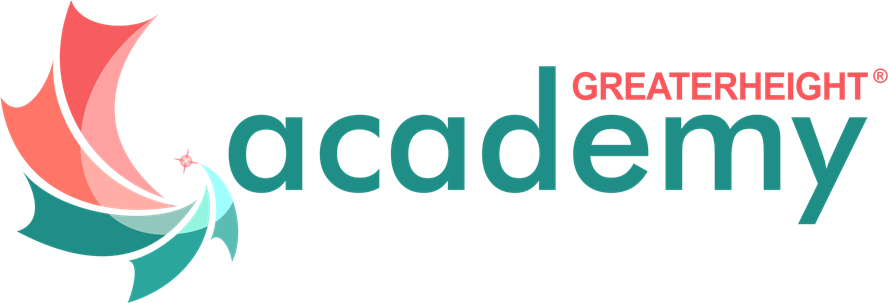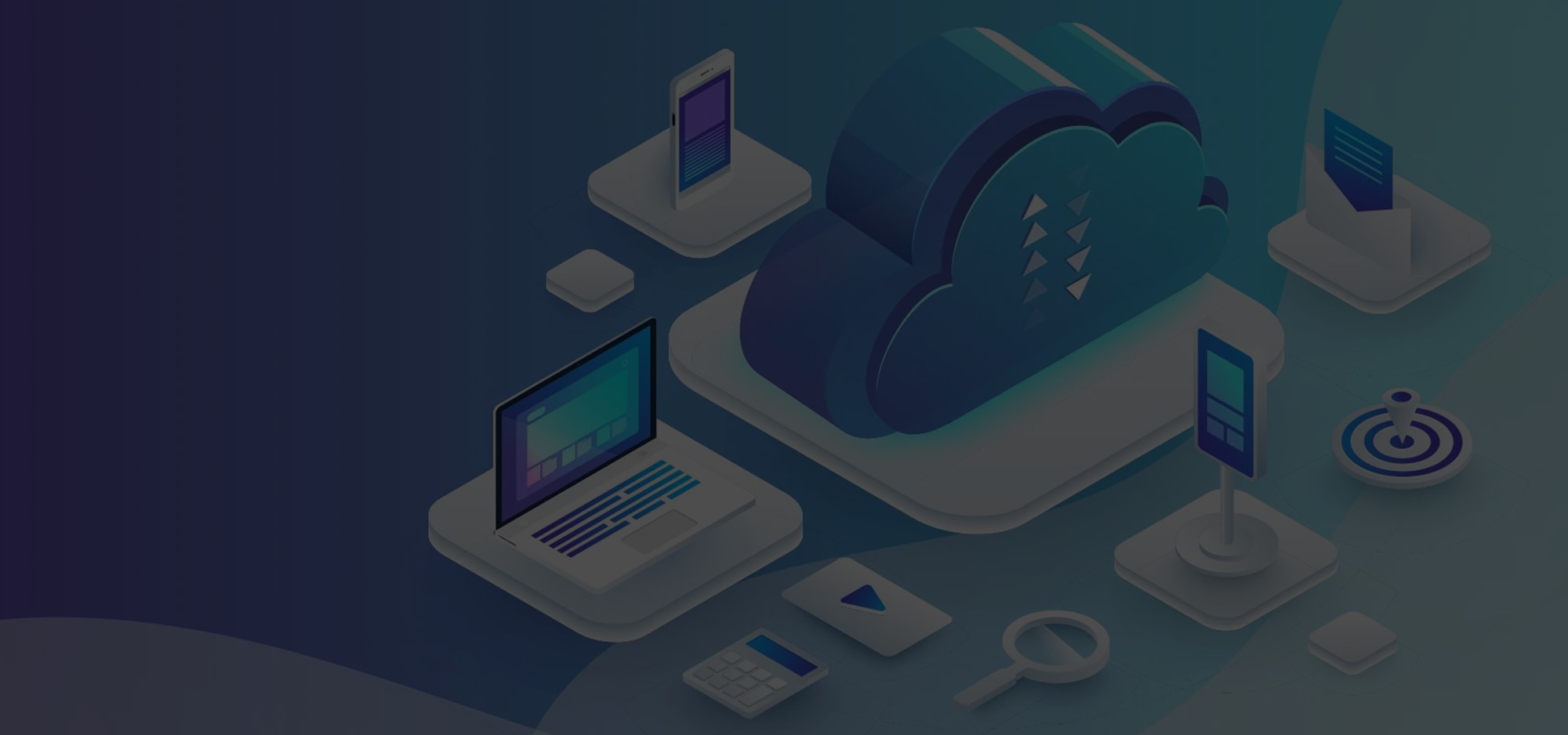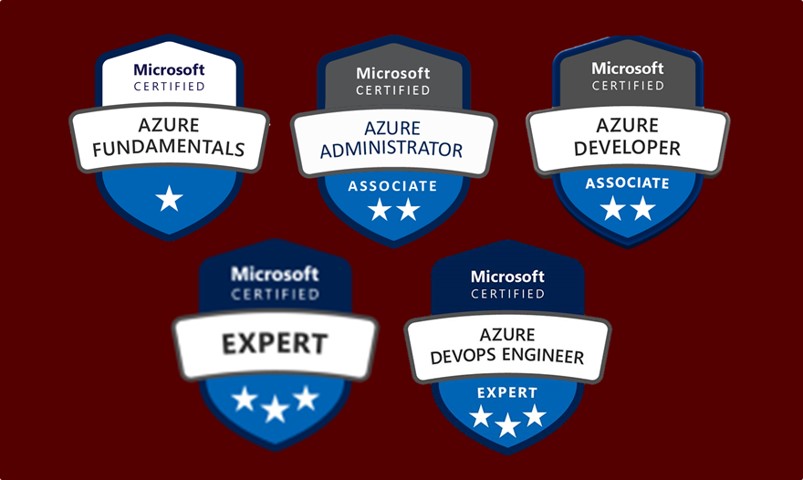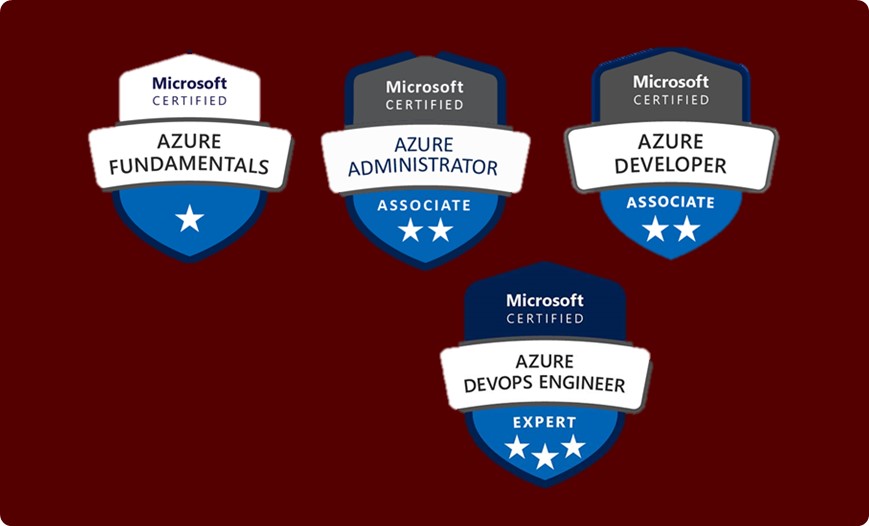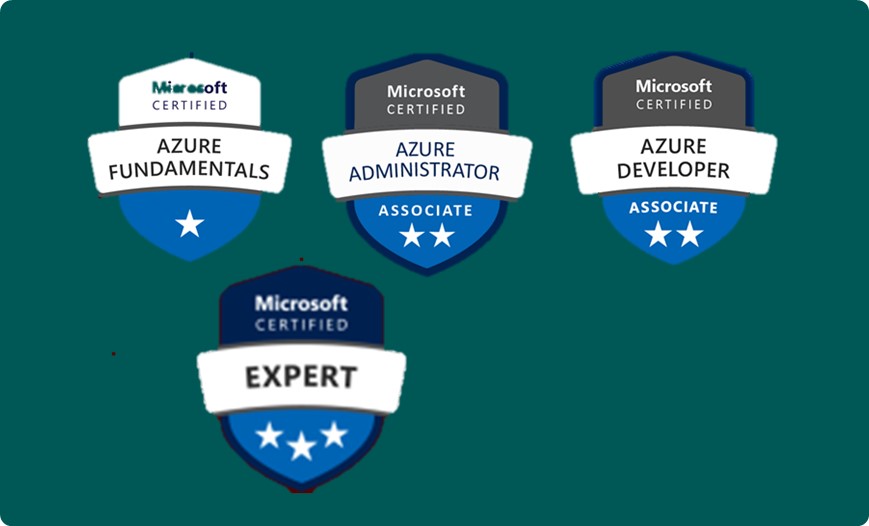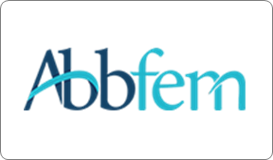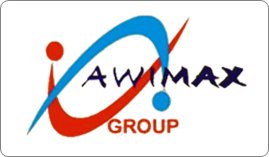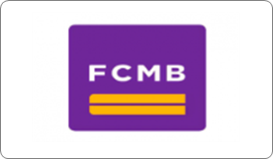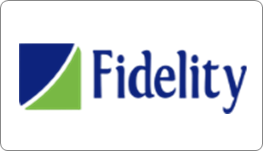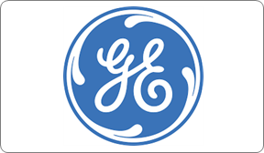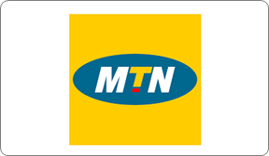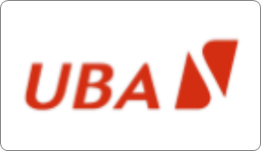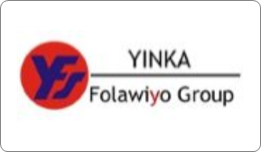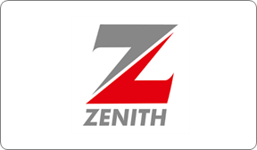Microsoft Azure Fundamentals Certification Training | AZ 900 Certification
- Unlimited Access to Live Training
- Understanding Microsoft Azure Offering IaaS, PaaS, SaaS
- Learn to migrate your project to Azure cloud
- Learn to build .NET applications with Azure
- Discuss Case Studies and Interview Q&A
- Learn from Microsoft MVPs and Technical Consultant
- Get access to DotNetTricks Membership
- Get Access to Interview preparation sessions
- Resume review and Resume Building Pro tips
- Learn to pass Azure certification exam AZ-900

Live Sessions
1 Yr. Membership

Skill Level
Beginner

Career Coaching
Weekly Session

Course Durations
4 Weeks

Assignment
20 Hours
Instructor-led Live Online Classes
Our learn-by-building-project method enables you to build practical or coding experience that sticks. 95% of our learners say they have confidence and remember more when they learn by building real world projects which is required to work in your real life.
| July 9th | Microsoft Certified - Azure Fundamentals AZ 900 Certification | SAT, SUN | SOLD OUT 3 PM to 6 PM |
| Aug 13th | Microsoft Certified - Azure Fundamentals AZ 900 Certification | SAT, SUN | FILLING FAST 3 PM to 6 PM |
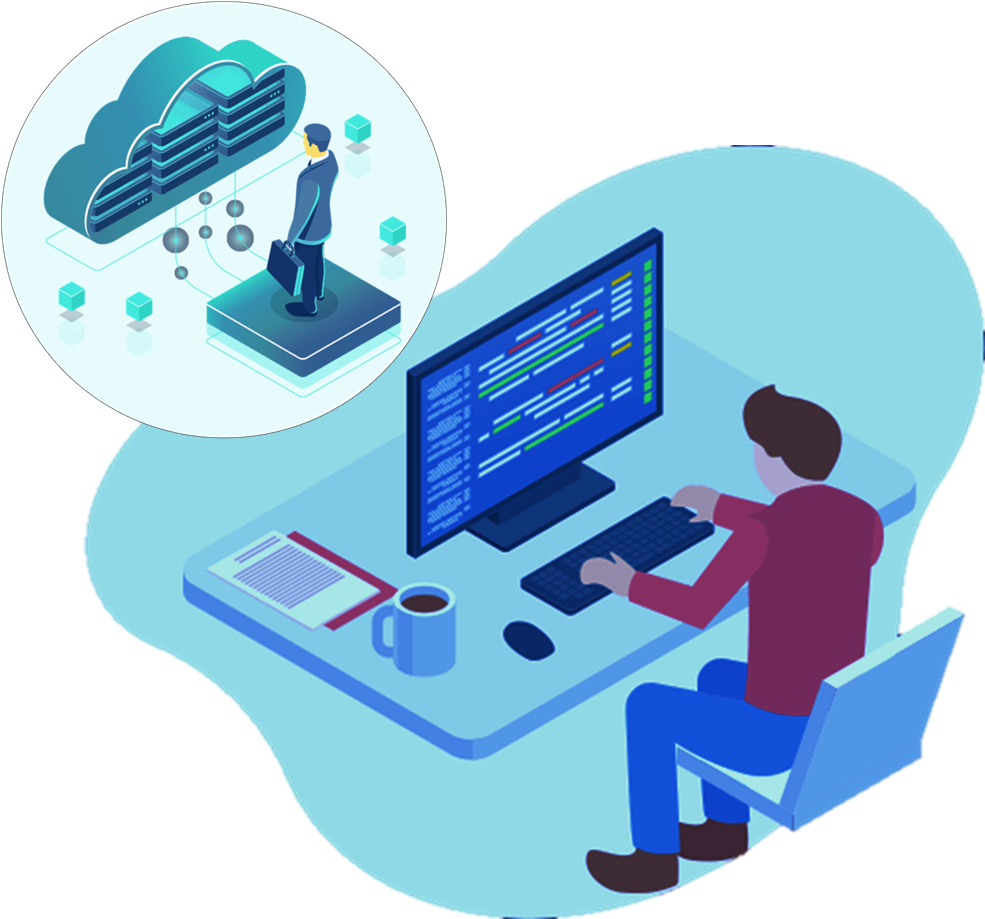
Microsoft Azure Related Courses
Why Learn Azure?
OPPORTUNITY
Public cloud spending alone will grow to $522B in next few years.
SALARY TRENDS
The average salary of Azure administrator is $105k (based on Indeed.com salary data).
PERFORMANCE
More than 83% websites will be cloud based within the next three years - Cisco.
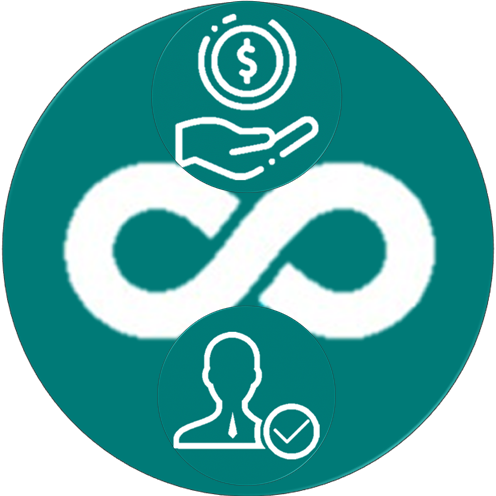
SECURED FUTURE
By 2026, 90% of enterprises will use both the IaaS and PaaS capabilities from cloud provider.
USED BY INDUSTRIES
3M, Heineken, NBC Sports, Citrix, UST Global, Mindtree, TCS, Wipro, Infosys & many MNC's worldwide use Azure across industries.
Azure Fundamentals Certification Training Overview
The curriculum has been designed to earn Microsoft Azure Developer Associate Certification (AZ-900). You can check the examination details and certification cost at Azure Fundamentals AZ-900
01. Describe Cloud Concepts
02. Describe Microsoft Azure Cloud platform
03. Understand Azure Global Infra
04. Describe Core Azure Services & Solutions
05. Use Management tools for Azure
06. Describe Security & Compliance
07. Understand Cost Management
08. Understand Service Level Agreements
01. IT Professionals/Application Developers
02. .Net Developers
03. Solutions Architects
04. DevOps Engineers
The AZ-900 training is targeted at candidates having non-technical backgrounds. For example, candidates connected with purchasing and selling cloud-based solutions and services can go for it. Those individuals having a technical background and want to authenticate their basic knowledge for cloud services can take up this training.
It will authenticate that you hold the basic knowledge required to begin your learning path for Becoming an Azure Developer, Administrator, Architect, or DevOps Engineer.
Microsoft Azure Fundamentals Course Contents
New to the cloud? Azure fundamentals is a six-part series that teaches you basic cloud concepts, provides a streamlined overview of many Azure services, and guides you with hands-on exercises to deploy your very first services for free.
After completing this learning path, you'll be able to:
- Understand the benefits of cloud computing in Azure and how it can save you time and money
- Explain cloud concepts such as high availability, scalability, elasticity, agility, and disaster recovery
- Describe core Azure architecture components such as subscriptions, management groups, resources and resource groups
- Summarize geographic distribution concepts such as Azure regions, region pairs, and availability zones.
01. Introduction
02. What is cloud computing?
03. What is Azure?
04. Tour of Azure services
05. Get started with Azure accounts
06. Case study introduction
07. Knowledge check
08. Summary
01. Introduction
02. Discuss different types of cloud models
03. Describe cloud benefits and considerations
04. Describe different cloud services
05. Knowledge check
06. Summary
01. Introduction
02. Overview of Azure subscriptions, management groups, and resources
03. Azure regions, availability zones, and region pairs
04. Azure resources and Azure Resource Manager
05. Azure subscriptions and management groups
06. Knowledge check
07. Summary
- Understand the breadth of services available in Azure including compute, network, storage, and database
- Identify virtualization services such as Azure Virtual Machines, Azure Container Instances, Azure Kubernetes Service, and Azure Virtual Desktop
- Compare Azure's database services such as Azure Cosmos DB, Azure SQL, Azure Database for MySQL, Azure Database for PostgreSQL, and Azure's big data and analysis services
- Examine Azure networking resources such as Virtual Networks, VPN Gateways, and Azure ExpressRoute
- Summarize Azure storage services such Azure Blob Storage, Azure Disk Storage, and Azure File Storage
01. Introduction
02. Overview of Azure compute services
03. Decide when to use Azure Virtual Machines
04. Decide when to use Azure App Service
05. Decide when to use Azure Container Instances or Azure Kubernetes Service
06. Decide when to use Azure Functions
07. Decide when to use Azure Virtual Desktop
08. Knowledge check
09. Summary
01. Introduction
02. Azure Virtual Network fundamentals
03. Azure Virtual Network settings
04. Azure VPN Gateway fundamentals
05. Azure ExpressRoute fundamentals
06. Knowledge check
07. Summary
01. Introduction
02. Azure Storage account fundamentals
03. Disk storage fundamentals
04. Azure Blob storage fundamentals
05. Azure Files fundamentals
06. Understand Blob access tiers
07. Knowledge check
08. Summary
01. Introduction
02. Explore Azure Cosmos DB
03. Explore Azure SQL Database
04. Exercise - Create a SQL database
05. Explore Azure database for MySQL
06. Explore Azure Database for PostgreSQL
07. Explore Azure SQL Managed Instance
08. Explore big data and analytics
09. Knowledge check
10. Summary
- Create a Virtual Machine in the portal
- Create a Web App
- Deploy Azure Container Instances
- Create a Virtual Network
- Create Blob Storage
- Create a SQL Database
By the end of this learning path, you'll be able to:
- Choose the correct Azure Artificial Intelligence service to address different kinds of business challenges.
- Choose the best software development process tools and services for a given business scenario.
- Choose the correct cloud monitoring service to address different kinds of business challenges.
- Choose the correct Azure management tool to address different kinds of technical needs and challenges.
- Choose the right serverless computing technology for your business scenario.
- Choose the best Azure IoT service for a given business scenario.
01. Introduction
02. Identify the product options
03. Analyze the decision criteria
04. Use IoT Hub
05. Use IoT Central
06. Use Azure Sphere
07. Knowledge check
08. Summary
01. Introduction
02. Identify the product options
03. Analyze the decision criteria
04. Use Machine Learning for decision support systems
04. Use Cognitive Services for data analysis
05. Use Bot Service for interactive chat experiences
06. Knowledge check
07. Summary
01. Introduction
02. Identify the product options
03. Analyze the decision criteria
04. Use Azure Functions
05. Use Azure Logic Apps
06. Knowledge check
07. Summary
01. Introduction
02. Understand your product options
03. Analyze the decision criteria
04. Use Azure DevOps to manage the application development lifecycle
05. Use GitHub to contribute to open-source software
06. Use Azure DevTest Labs to manage testing environments
07. Knowledge check
08. Summary
01. Introduction
02. Identify the product options
03. Analyze the decision criteria
04. Use the Azure portal to visually understand and manage your cloud environment
05. Use Azure PowerShell for one-off administrative tasks
06. Use the Azure CLI for one-off administrative tasks
07. Use the Azure mobile app to manage Azure on the g
08. Use ARM templates to deploy an entire cloud infrastructure
09. Knowledge check
10. Summary
01. Introduction
02. Identify your product options
03. Analyze the decision criteria
04. Use Azure Advisor
05. Use Azure Monitor
06. Use Azure Service Health
07. Knowledge check
08. Summary
- Implement an Azure IoT Hub
- Implement Azure Functions
- Create a VM with a Template
- Create a VM with PowerShell
- Create a VM with the CLI
01. Introduction
02. Protect against security threats by using Azure Security Center
03. Detect and respond to security threats by using Azure Sentinel
04. Store and manage secrets by using Azure Key Vault
05. Exercise - Manage a password in Azure Key Vault
06. Host your Azure virtual machines on dedicated physical servers by using Azure Dedicated Host
07. Knowledge check
08. Summary
01. Introduction
02. What is defense in depth?
03. Protect virtual networks by using Azure Firewall
04. Protect from DDoS attacks by using Azure DDoS Protection
05. Filter network traffic by using network security groups
06. Exercise - Configure network access to a VM by using a network security group
07. Combine Azure services to create a complete network security solution
08. Knowledge check
09. Summary
- Secure Network Traffic
- Implement Azure Key Vault
01. Introduction
02. Compare authentication and authorization
03. What is Azure Active Directory?
04. What are multifactor authentication and Conditional Access?
05. Knowledge check
06. Summary
01. Introduction
02. Control access to cloud resources by using Azure role-based access control
03. Prevent accidental changes by using resource locks
04. Exercise - Protect a storage account from accidental deletion by using a resource lock
05. Organize your Azure resources by using tags
06. Control and audit your resources by using Azure Policy
07. Exercise - Restrict deployments to a specific location by using Azure Policy
08. Govern multiple subscriptions by using Azure Blueprints
09. Accelerate your cloud adoption journey by using the Cloud Adoption Framework for Azure
10. Create a subscription governance strategy
11. Knowledge check
12. Summary
01. Introduction
02. Explore compliance terms and requirements
03. Access the Microsoft Privacy Statement, the Online Services Terms, and the Data Protection Addendum
04. Explore the Trust Center
05. Access Azure compliance documentation
06. What is Azure Government?
07. What is Azure China 21Vianet?
08. Knowledge check
09. Summary
- Manage access with RBAC
- Manage resource locks
- Implement resource tagging
- Create an Azure Policy
- Explore the Trust Center
As you move to the cloud, you might ask:
- How much will it cost?
- What guarantees does Azure provide around uptime and connectivity?
- How do preview services impact my production applications?
01. Introduction
02. Compare costs by using the Total Cost of Ownership Calculator
03. Exercise - Compare sample workload costs by using the TCO Calculator
04. Purchase Azure services
05. Exercise - Estimate workload cost by using the Pricing calculator
06. Manage and minimize total cost on Azure
07. Knowledge check
08. Summary
01. Introduction
02. What are service-level agreements (SLAs)?
03. Define your application SLA
04. Design your application to meet your SLA
05. Access preview services and preview features
06. Knowledge check
07. Summary
- Use The Azure Pricing Calculator
- Use the Azure TCO Calculator
- Open A Support Request
- Calculate Composite SLAs
- Access Azure Preview features
AZURE FUNDAMENTALS
SALARIES & JOBS AVAILABILITY For Azure Fundamentals Jobs Pay per Year?
Most Popular Jobs Similar to Azure Fundamentals
- Microsoft Solutions Architect
- Microsoft Azure Administrator
- Azure Developer
- Azure Data Engineer
- Azure Solution Architect
- Azure Data Factory
- Azure Administrator
- Azure Security Engineer
- Azure Architect
- Azure Cloud Engineer

Most Popular Azure Fundamentals Job Categories
- Microsoft DevOps Engineer
- Microsoft Azure Devops
- Azure Infrastructure Engineer
- Microsoft Azure Fundamentals
- Azure API Management
- Azure Database Administrator
- DevOps Engineer Expert
- Azure Sales
- Azure IOT

GreaterHeight Academy Benefits
Unlimited Live Sessions
Live Training Membership give you unlimited access to all our live training and sessions recording from anywhere and using any device staying at home.
Expert-led Live Sessions
All sessions are led by our expert mentors who are well connected to the open-source communities. They explain complex technical concepts in an easy way.
Test and Quizzes
Each Module will be followed by mock-up tests and quizzes which help you to monitor your learning progress and evaluate yourself.
Build Real-Projects
All the sessions are delivered using real-life. You will learn how to build real projects using industry recommended principles & practices.
Personal Career Coach
Get career guidance from top experts as your personal coach, align your preparation strategy & learning resources to achieve your goal.
Interview Prep Sessions
Get career guidance and ask your questions & doubts live. Join to prepare yourself for next job interview to crack and get hired!
Resume Building
Optimize your resume with the help of our experienced experts to get your desired jobs.
Hands-on Assignments
Learn by doing hands-on to gain confidence to solve real-world challenges and assignments. Interview Prep Sessions.
Discord Community Accessh
Get access to Discord community to discuss doubts, access assignments and learning with peer interaction.
Technical Support
We have online support team available to help you with any technical queries you may have during the course.
Get Certified
Master in-demand job skills to become a technology expert, get certified, and accelerate your career.
Career & Certifications
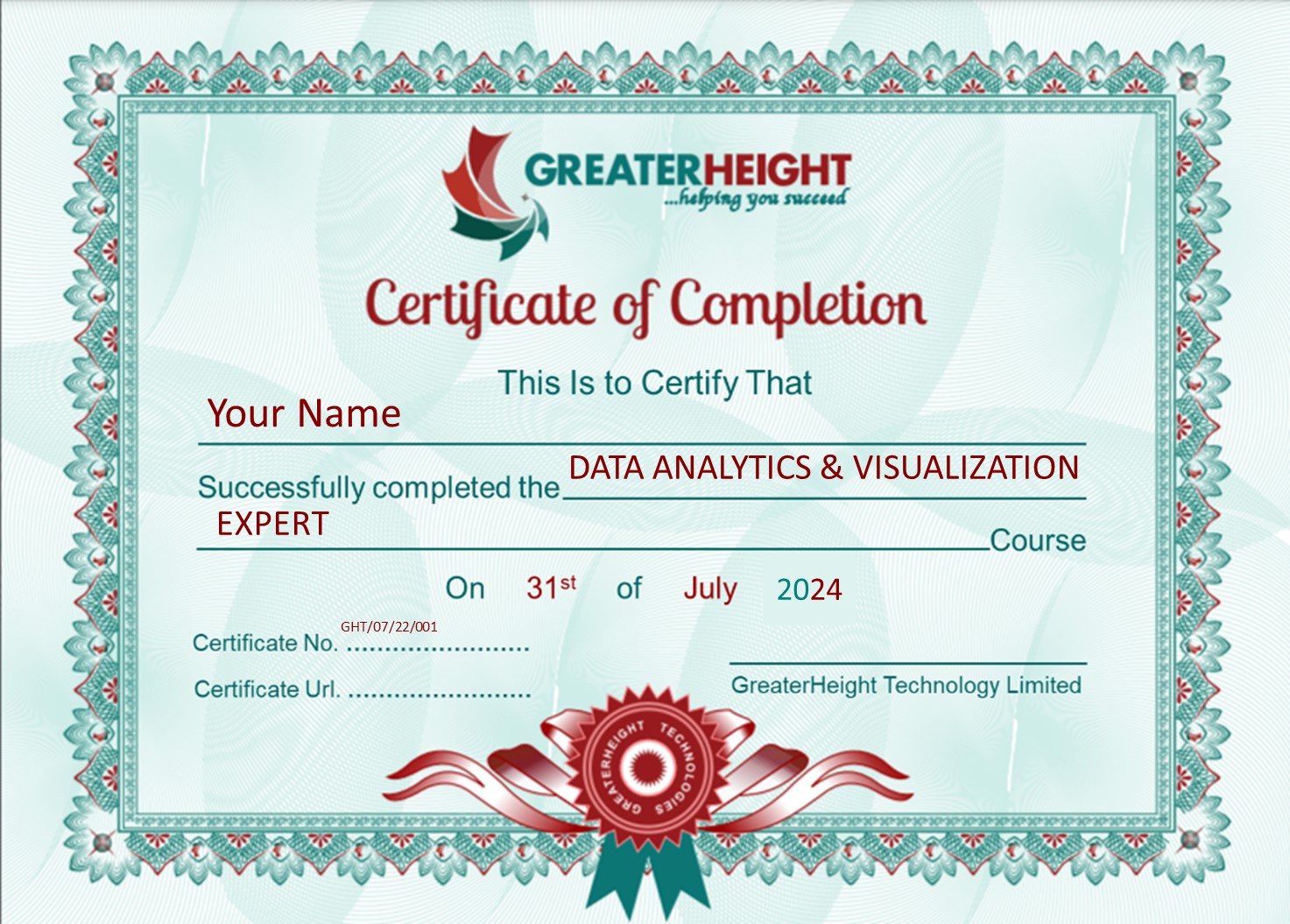
The path of this certification contains general concepts such as elasticity, scalability, and IaaS vs. PaaS. Once you complete it, you can understand the Azure-specific technologies such as Azure ML, Azure IoT Hub, and Azure SQL DB.
The training course is uniquely designed to cover all the essential aspects of Azure according to the level of certification. Any Azure Administrator, Azure Solution Architect, Azure Data Engineer, Azure DevOps Engineer, etc. can judiciously choose a suitable certification level based on his/her skills.
The renewal window starts 6 months prior to the cert expires. Within this window before the expiry of cert, you can go for a free online assessment. When you renew certification within 6 months of the renewal window, the validity of the cert extends to 1 year from its preliminary expiration.
FAQs

Download the Course Curriculum to view the course contents in your leisure time!
Enroll Now for any of the courses and Get 10% off on our promo!
If it does not clear what you want and needs a career counselor, please get in touch.
OUR CLIENTS
We Have Worked With Some Amazing Companies Around The World
Our awesome clients we've had the pleasure to work with!
